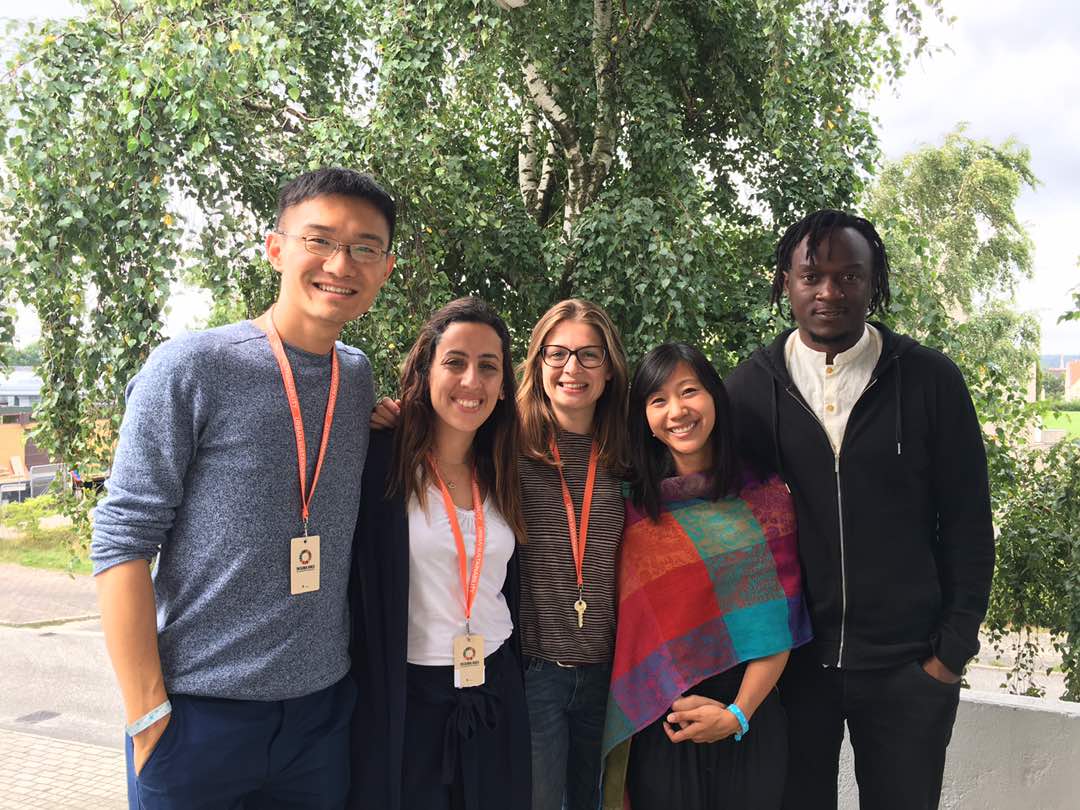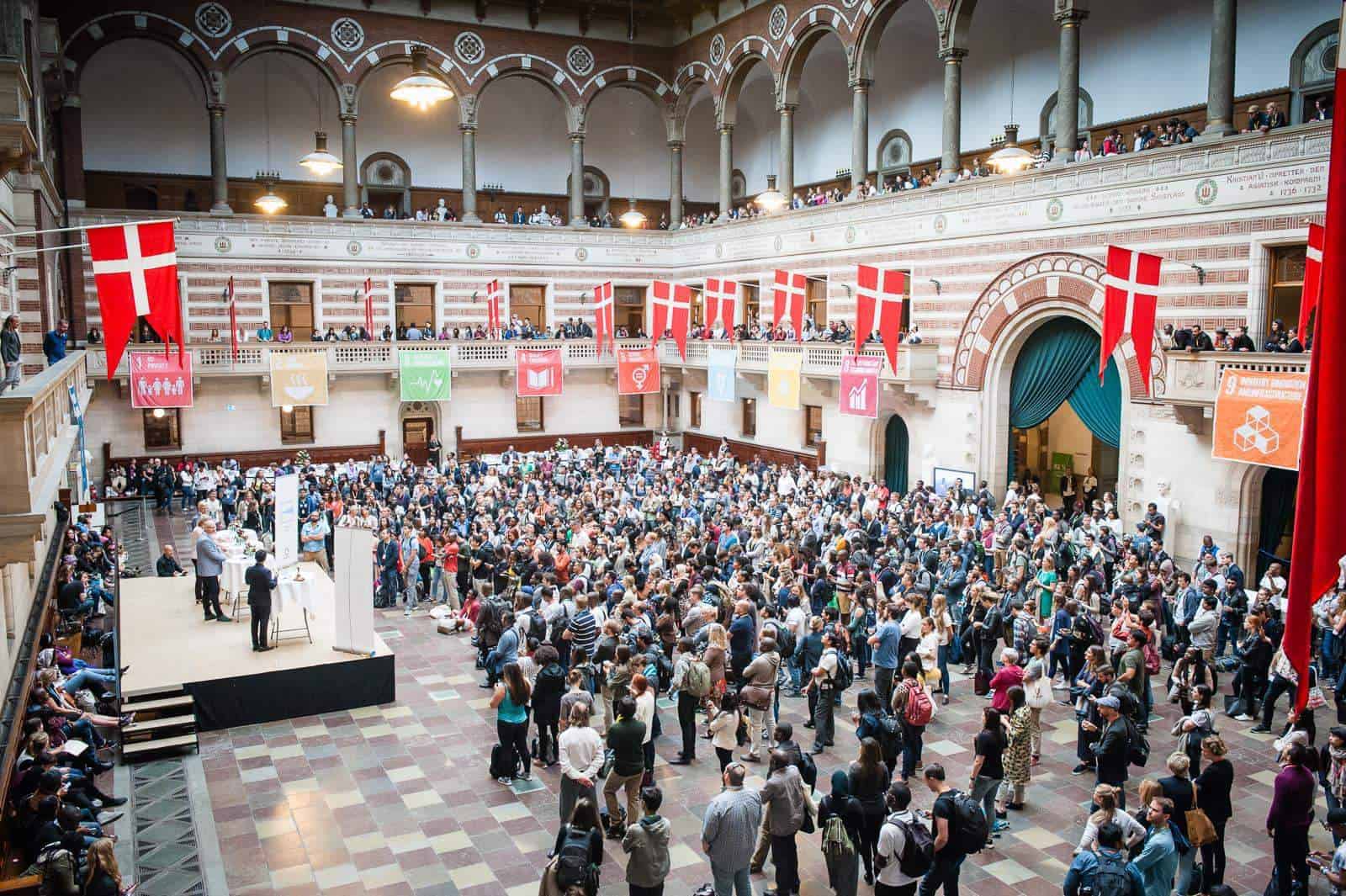By Verena Rauchenwald, IIASA Air Quality and Greenhouse Gases Program.
“This is just the beginning…” were the visionary words of Henrik Skovby, one of the founders of the global innovation lab UNLEASH, at the UNLEASH Award show in Aarhus, Denmark, on 21 August 2017. Honorary guests, such as the Prime Minister of Denmark, Lars Løkke Rasmussen, the Danish Crown Princess Mary, and Ashton Kutcher, US actor and investor, came to Aarhus to deliver awards to UNLEASH’s top teams with the best ideas on how to achieve the UN Sustainable Development Goals (SDGs) by 2030.
The UNLEASH innovation lab invited 1000 international ‘talents’, aged 18-35, to Denmark for 10 days, to undergo a unique innovation creation procedure facilitated by Deloitte, one of UNLEASH’s partners. As one of the selected talents, I had the privilege of spending a few days at one of Denmark’s Højskole (a Danish community college) where the concept of lifelong learning really comes to life. These community colleges’ principles go back to the Danish philosopher Grundtvig, who believed that education should be available to everyone. Nowadays, many young adults choose to live and learn at Højskole for four to five months at a time, to learn about themselves and various themes. Tests do not exist, instead participants are encouraged to go to their classes and are given a certificate in the end.

Our team in Copenhagen. Left to right: Jerry Zhu, Nazly Abdel Azim, Verena Rauchenwald, Tiffany Yu, Raymond Besiga © Jerry Zhu
For the innovation process, I was grouped together with brilliant minds from Shanghai, Cairo, Kampala and San Francisco. Our team worked on the SDG 11: “Make cities and human settlements inclusive, safe, resilient and sustainable.” Among other sub goals, the SDG 11a further aims to “support positive economic, social and environmental links between urban, peri-urban and rural areas by strengthening national and regional development planning.” After many hours of brainstorming and discussions, our group agreed on the following problem statement: Small-scale farmers in Eastern Africa have difficulties selling their produce to urban businesses.
From there on, we interviewed Eastern African farmers, intermediaries and urban businesses via phone to understand their needs. We found that efforts to cut out intermediaries are often not beneficial as they hold many connections on both sides and take care of the logistics. Furthermore, farmers often do not know what to produce and therefore plant a variety of crops of smaller quantities. As a solution, we came up with a digital platform that supports the overall information flow between the actors. It communicates via text message between farmers and intermediaries and through online forms between intermediaries and urban businesses. This way, all actors win through increased business based on a better match between supply and demand, and less produce is wasted.
The many hours of work and pitching of our ideas to UNLEASH’s facilitators, experts and investors were accompanied by daily sessions of singing in the morning (a Højskole tradition), immense cooperative efforts to help each other, and a shared drive to make the world a better place for all. As a result, a strong, collaborative, global community was born.

Our welcome to Copenhagen © Jerry Zhu
Following Henrik Skovby’s vision, the UNLEASH organization announced that they would continue to support the UNLEASH community and their ideas for at least one more year, both financially and through advisory services. From now on the UNLEASH innovation lab will take place once a year until the year 2030, when the 17 SDGs need to be fulfilled. My hope is that more initiatives such as UNLEASH will arise, and young people will become empowered to act upon their beliefs and consequently guide our world into a sustainable future.
This article gives the views of the author, and not the position of the Nexus blog, nor of the International Institute for Applied Systems Analysis.

You must be logged in to post a comment.